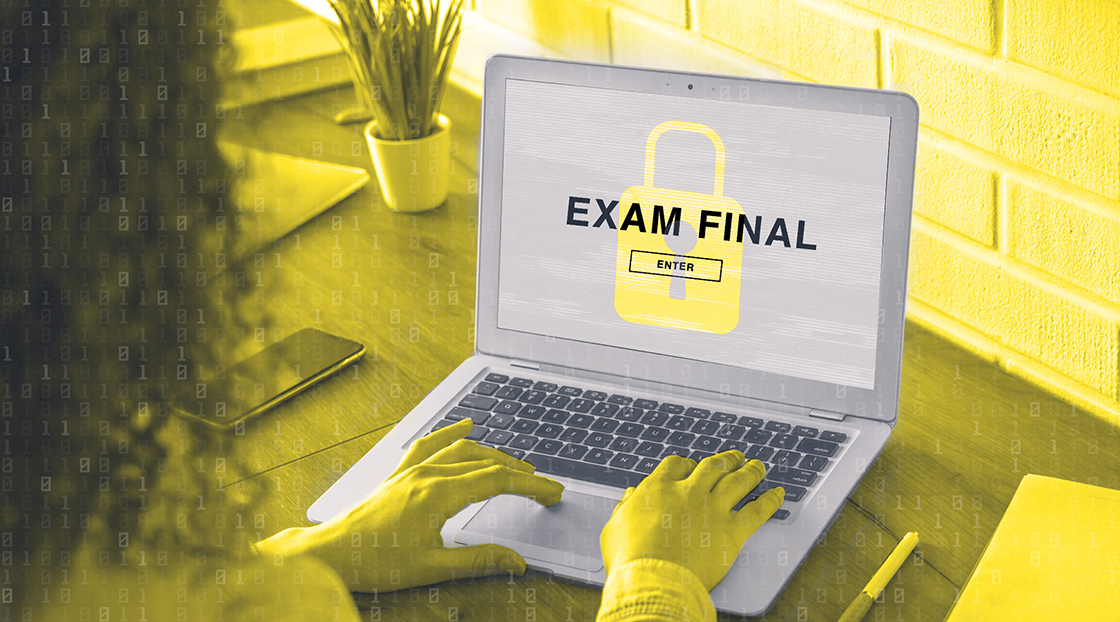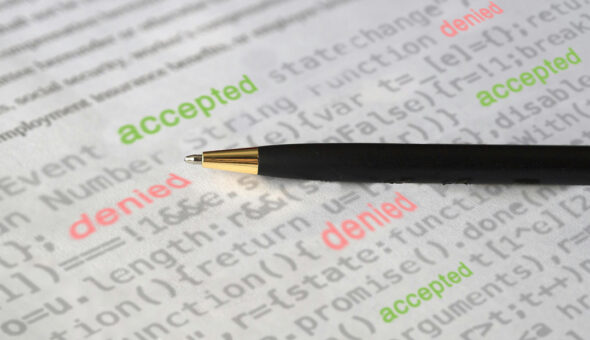Invasion of Privacy
As Americans’ concerns for monitoring software and government surveillance have grown, higher ed institutions may not have considered all the unforeseen consequences for students—and their relationships with their professors. In August 2022, this issue was taken to the national stage when a federal court sided in favor of Cleveland State University student Aaron Ogletre, who sued the university for requiring him to submit to an Honorlock room scan before his exam, finding the scan violated his Fourth Amendment right to privacy.
Honorlock is an internationally used proctoring software that, among other features, scans students’ rooms using webcams to monitor the surroundings before and during exams. The Honorlock program is easily integrated into virtual classrooms such as Canva and Blackboard. The program launches when the student is ready to test, beginning with the Honorlock authentication process; the student takes a selfie and shows their official identification card, before the program scans the room. Honorlock records the student’s exam session by webcam, as well as records the student’s screen. Honorlock’s remote proctoring software can detect cell phone, tablet and laptop use while a student is taking the exam.
Ogletree sued his university, alleging that the room scan violated Fourth Amendment rights protecting U.S. citizens against “unreasonable searches and seizures.” U.S. district court Judge J. Philip Calabrese on Monday, August 22, 2022, decided in Ogletree’s favor: Room scans are unconstitutional. In defense, Cleveland State argued that room scans are not “searches” because they are limited in scope, conducted to ensure academic fairness and exam integrity and not coerced.
“Mr. Ogletree’s privacy interest in his home outweighs Cleveland State’s interests in scanning his room,” Judge Calabrese said when delivering his verdict. “Accordingly, the Court determines that Cleveland State’s practice of conducting room scans is unreasonable under the Fourth Amendment. Rooms scans go where people otherwise would not, at least not without a warrant or an invitation.”








